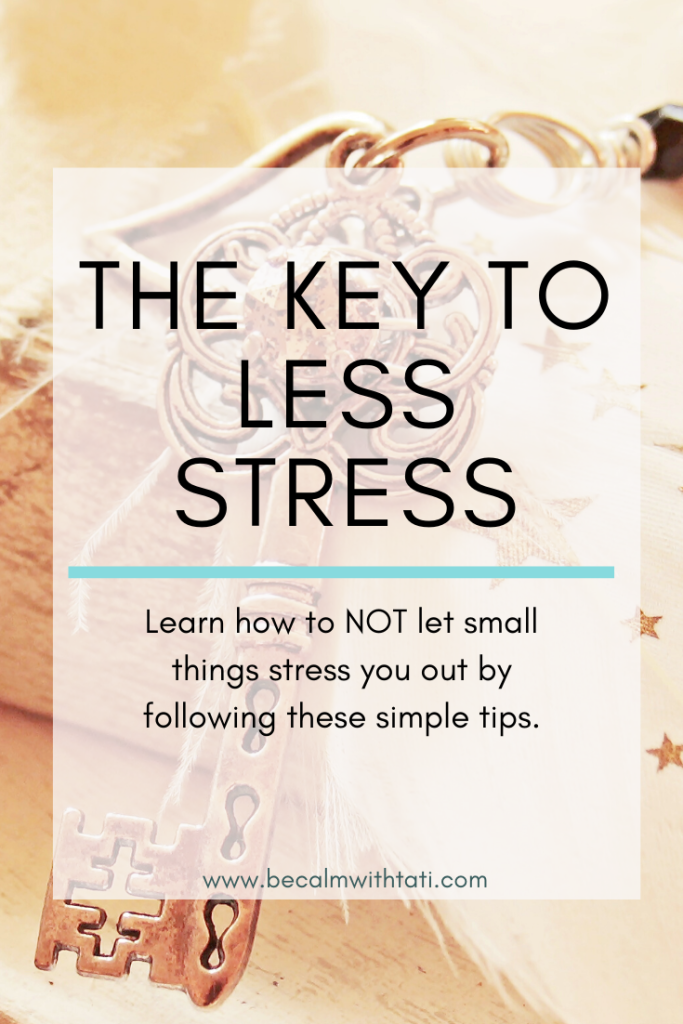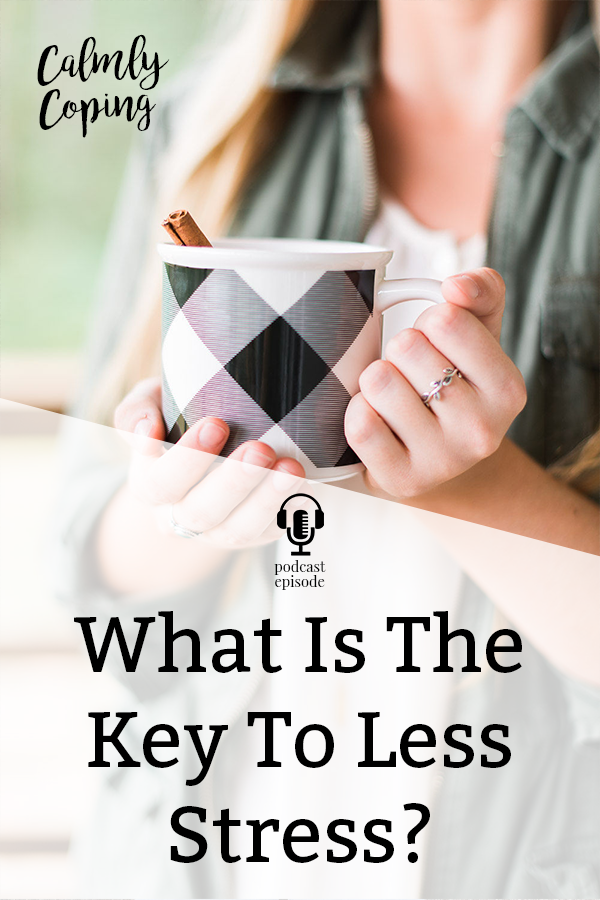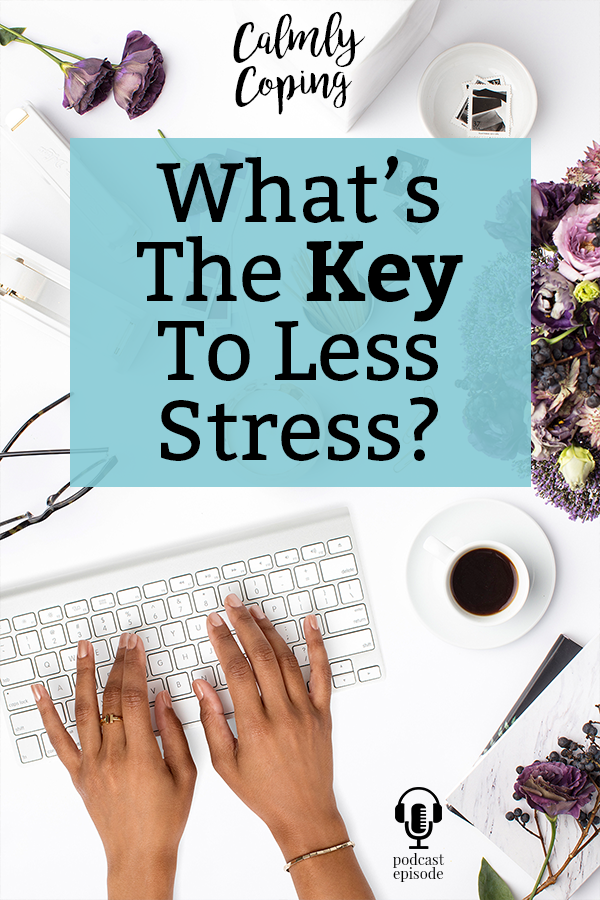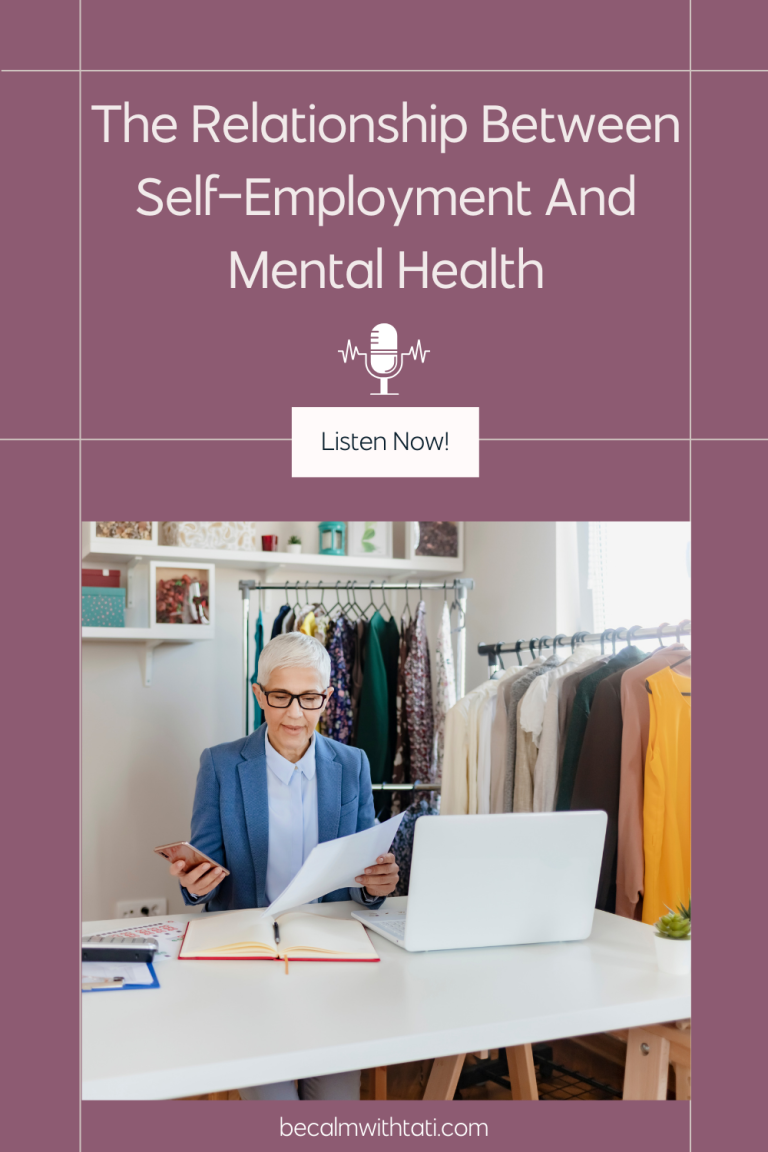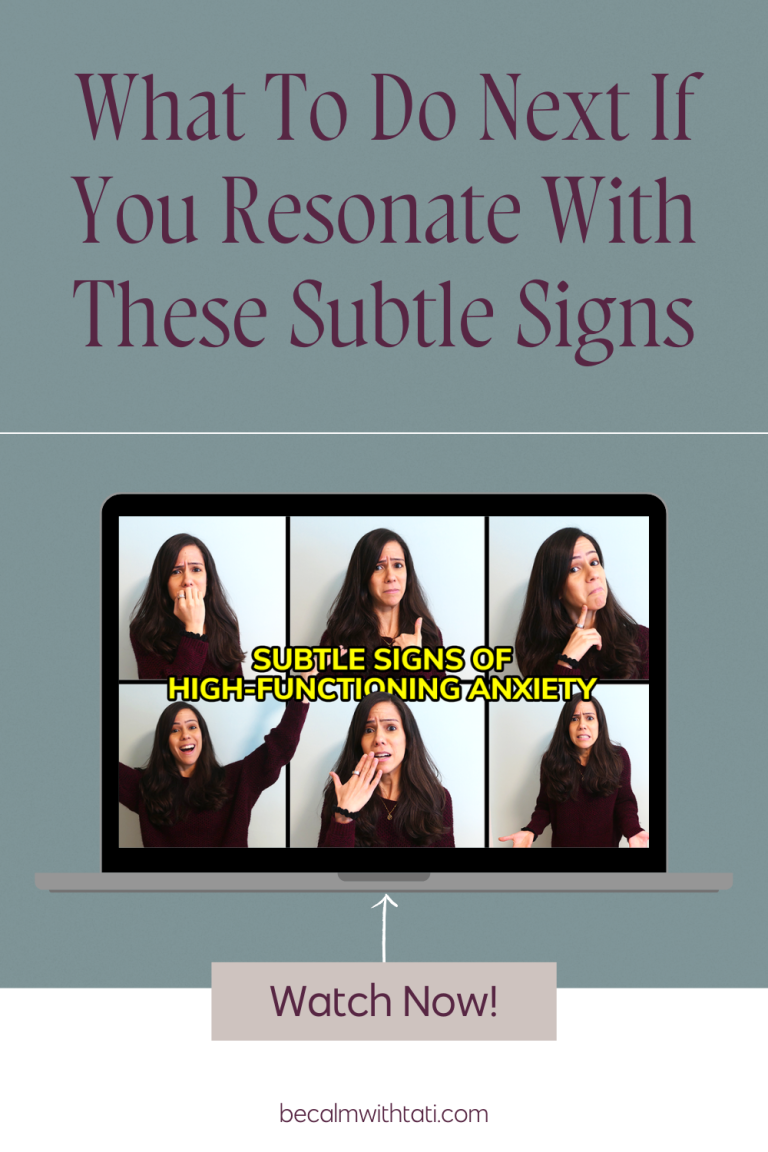Listen Now:
Learning This Will Help You Manage Stress Levels:
Everybody experiences stress. It is a product of difficult situations, people, and circumstances.
Stress is a response to something or someone in your environment. Stress is not the thing that happens, but it is your response to it. A stressor is the thing that occurs that may cause you to feel stressed.
Everybody responds differently to different stressors and situations. There are some things that most people would agree are stressful, such as a serious trauma or the death of a loved one.
On the other hand, many of the small things that happen on a day-to-day basis can elicit different responses depending on the person. One person may respond in a rage to being cut off by another vehicle, whereas somebody else may just shrug it off. This is an example of the kinds of potentially stress-inducing situations that are crucial to pay attention to.
While some people are focused on the big events in life (which are absolutely important- don’t get me wrong), I am focused on the small, everyday occurrences. These things are the bulk of our experiences and ultimately shape the way we feel, how we behave, and potentially who we are.

Focusing On The Small Stuff
So what causes you to get stressed? A massive to-do list? Deadlines at work? A fight with your partner? Traffic?
These are the cornerstones of what causes stress. Especially if you are constantly negatively reacting to every little thing that occurs.
An important factor that influences your stress reaction is your baseline mood. Are you already stressed because you are in a rush to work and now there is traffic? Did you not want to get out of bed this morning and now you have a major deadline at work?
Your current mood has a big influence on how you will respond to stress.
Becoming more mindful of your mood and your triggers can really help you understand what is really going on. Maybe you are snapping at your significant other because you are stressed. A simple statement to your partner of, “I’m stressed about ____ so I’m not in the best mood” can really help to relieve tension in the communication. This can also prevent your significant other from taking things personally, when in reality it isn’t personal.
These are all important things to be aware of, but what will really help you react to stress differently?
The Key To Less Stress
The most important factor in regards to not getting stressed is your interpretation of the stressor. How do you view it? What does it mean to you?
Everybody experiences stress and it is completely normal. I am not trying to demonize people who get stressed out. Ultimately, as humans we are able to tolerate moderate levels of stress. The problem arises when stress becomes chronic and regular.
The way we respond to stress occurs on a spectrum, and as complicated humans we may lie on different parts of this spectrum at different moments. Here is how I interpret the two ends of the spectrum:
- Exploding over every little thing.
- Reacting calmly to stressors.
The question of the hour is- do you want to allow your circumstances to dictate your mood? Or do you want to have a certain mood despite your circumstances?
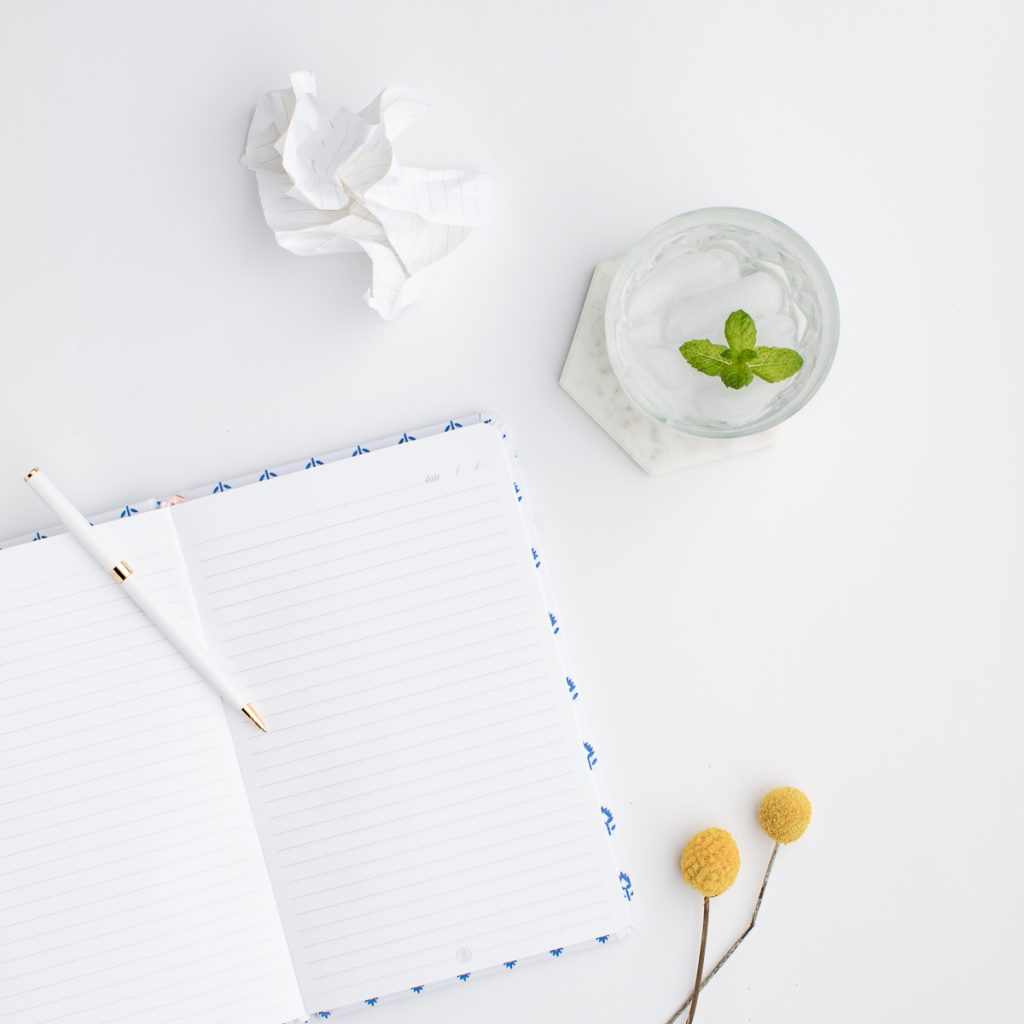
Exploding Over Every Little Thing
Let’s take a closer look at this reaction. I’m sure you don’t want this to happen, or to allow every little thing to ruin your day or cause you to feel annoyed.
How does this happen? First of all, you may be avoiding facing the problems in your life. You are probably using forms of distraction (e.g., watching TV, being a workaholic, drinking alcohol, overeating) as a way of avoiding your stress.
This doesn’t make things go away. This may make you feel better in the short-term, but those feelings are always there under the surface. After a while, this stress needs to come out. Things have been pushed down for so long that there will come a time soon when there needs to be a release of emotion.
This is why it may seem like a tiny thing causes you to get bent out of shape, when in reality it is a multitude of things over time, or maybe one big thing boiling over.
You are avoiding looking at your triggers at all, and you have become blind in a way to what stresses you out. The good news is that it is always possible to change your perception, although it is not always entirely possible to change your circumstances.
Therefore, if you experience moments like this and you are still reading- you have a chance to change.
How? Let’s take a look at the other end of the spectrum, approaching stressors calmly, to figure that out.
Approaching Stress With Calm
If you have ever felt this way, maybe it’s just because you are in a good mood. But if you consistently react like this, you probably have an increased awareness of your emotions and you understand that things do not always happen as planned, or as you want them to.
As a result, you have a different perception of the things that happen to you. You are not acting as a victim of your circumstances. You are taking control over the way you look at your life and the things that happen.
Paradoxically, this control may mean accepting that you do not always have control over the things that happen to you, and that’s okay. A stressor will only be as stressful as your interpretation of it.
To sum this up, these are the things that influence how you react or respond to stress:
- Your mood at that moment (or in the events leading up to it)
- How aware you are of your emotions
- Your perception of the stressor
This is awesome news because you have control over at least two out of three of these things!
You have the ability to increase your awareness of your emotions, and you can change your perception of stress (your thoughts). Your mood is not always as easy to change directly, but you can alter it just by having awareness of your emotions and thoughts.

How Do I Stop Reacting To Stressful Things As Much?
Increase Your Awareness Of Your Emotions
In order to do this you have to stop living your life on auto-pilot. You must take some time to reflect and notice what is going on in your body and brain.
A few ways to do this are through:
- Journaling
- Meditating
- Talking to somebody- a friend, significant other, family member, or therapist
- Expressing your emotions creatively- through creative writing, drawing, or playing music
Change Your Perception Of The Stressor
This can require some in the moment awareness of your thoughts in reaction to the stressor- which can be tough to do when emotions are heightened. If you are feeling stressed already, first take some steps to relax and calm your body down.
A few ways to relax in the moment when you are feeling stressed:
- Take deep, slow breaths all the way into your belly
- Go for a walk
- Take a break from the situation, if possible
- Listen to calming music
- Talk/vent to somebody
Okay, when you are a little more relaxed, now it is time to tune into those thoughts. Ask yourself questions such as:
- Is there anything I can do about this?
- How do I view this stressor?
- What does it mean to me?
- Is getting stressed out helpful?
- Is this really a big deal?
These questions are a great starting point to examine how you view the stressors in your life currently. You can ask yourself these questions in the moment, or as a reflection after the fact.
If you are able to implement even one of the things mentioned in this article when you are feeling stressed out, I know you will be on the way towards having more control over your stress response

Remember, this is not a gimmick or a quick fix. This is a change in your relationship to how you perceive stress and it will take time to change the way you have been used to looking at things for years, if not your entire life.
Stress is completely normal, but sometimes there are some small changes in your perception that you can make so that you have more control over your mood and life satisfaction.
Please post in the comments below if you have any suggestions for ways of coping with stress.
Pin for later!
